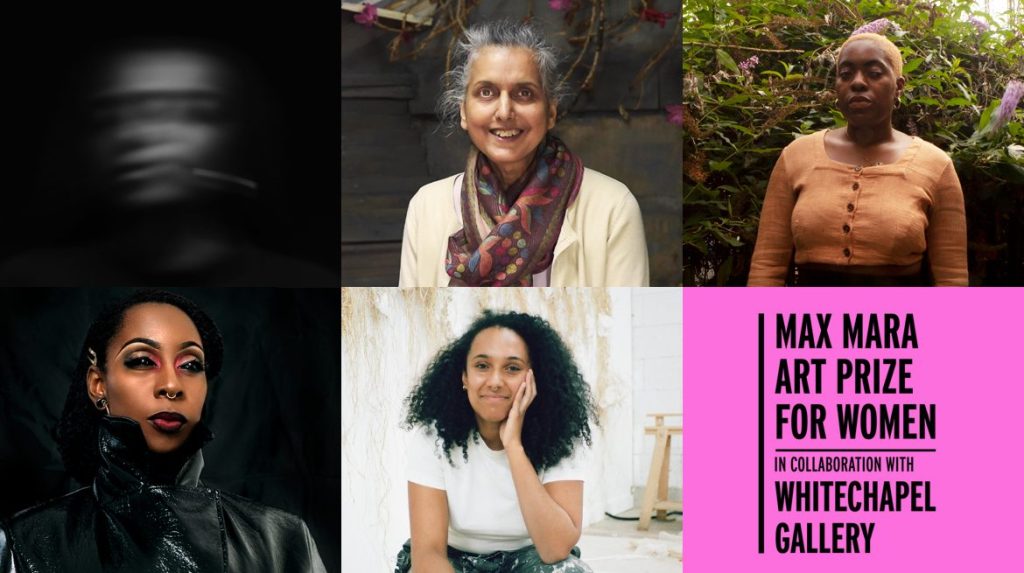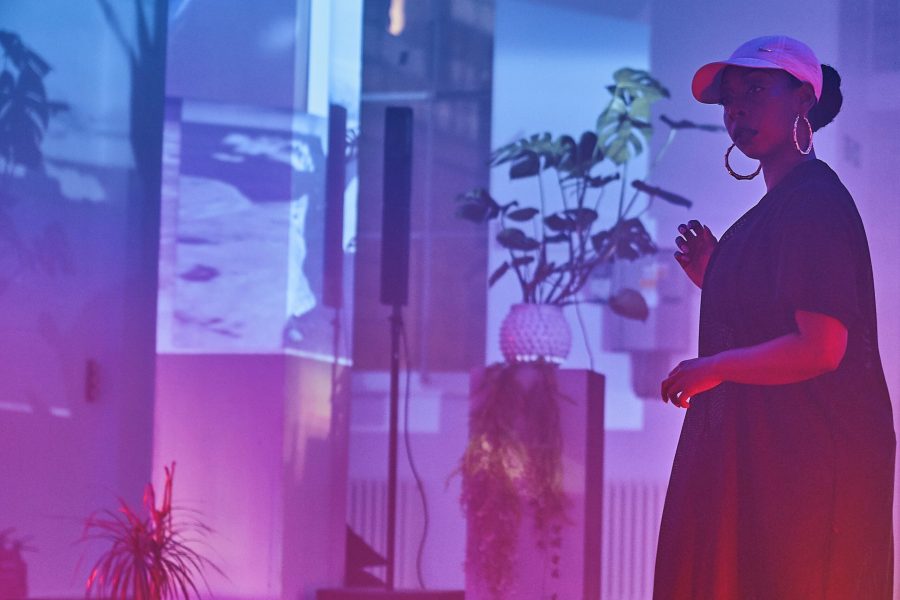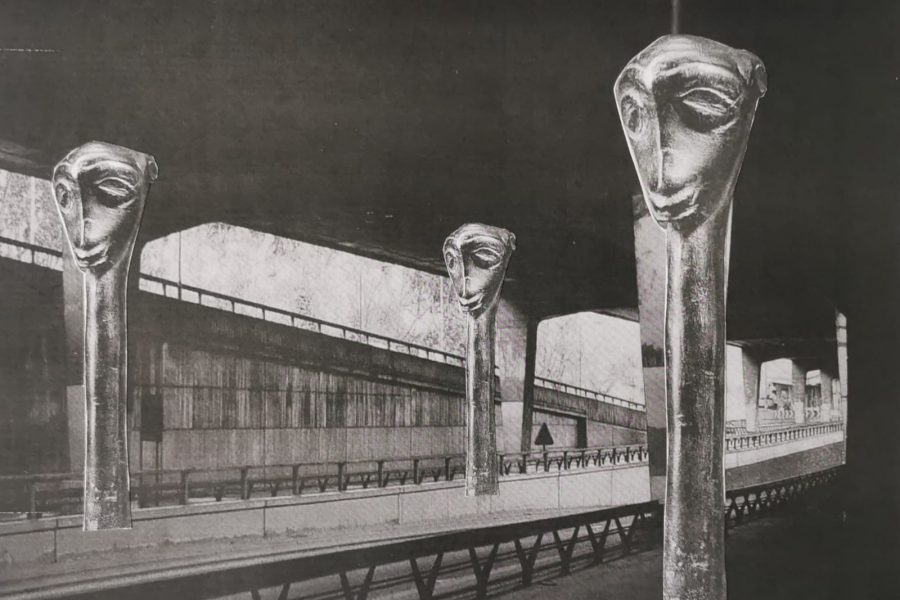The Whitechapel Gallery, Collezione Maramotti and Max Mara have announced the five shortlisted artists for the ninth edition of the Max Mara Art Prize for Women: Rebecca Bellantoni, Bhajan Hunjan, Onyeka Igwe, Zinzi Minott and Dominique White.
Artists were shortlisted by a judging panel consisting of gallerist Rozsa Farkas, artist Claudette Johnson, writer Derica Shields (Jerwood Bursaries 2019) and collector Maria Sukkar. Typically hosted by Whitechapel Gallery’s Director, the jury of the 2022-24 edition was chaired by the Prize’s guest curator Bina von Stauffenberg. The winner will be announced in Spring 2023.
The Max Mara Art Prize for Women in collaboration with Whitechapel Gallery is a biannual award established in 2005. The winner is awarded a six-month Italian residency tailored to fit the artist and their winning proposal for the Prize. During the residency the artist will develop an ambitious new project which is presented in major solo exhibitions at the Whitechapel Gallery in London, UK and at Collezione Maramotti in Reggio Emilia, Italy, which then acquires it.
Zinzi Minott
Zinzi Minott’s work focuses on the relationship between dance, bodies and politics. Minott explores how dance is perceived through the prisms of race, queer culture, gender and class. She is specifically interested in the place of Black women’s body within the form. As a dancer and filmmaker, she seeks to complicate the boundaries of dance, seeing her live performance, filmic explorations, prints and objects as different, but connected manifestations of dance and body-based outcomes and modes of inquiry.
In 2021 Zinzi Minott was selected for Live Work Fund, a programme launched to support 33 exceptional individuals over 12 months with awards of £20,000 to adapt their approach to making and sharing live work. The selected artists, creatives and producers had no more than ten years’ experience, were based across the UK and their practice pre-Covid-19 focused and relied on live performance.
Rebecca Bellantoni
Rebecca Bellantoni mines everyday occurrences and abstracts them. Investigating through the lens of metaphysics, comparative theology, philosophy, religion and spirituality and the aesthetics of them she looks to find pathways to collective, multi-level sanative moments.
Rebecca was selected for a 2020 Jerwood Bursary, which provided funding to help artists explore and develop their next steps, whether through supporting skills and knowledge development and/or supporting the first stage development of a new idea. The bursary supported Rebecca’s research and making project C.R.Y: Concrete Regenerative Yearnings, which looks at the materials and space of the city and its effects on our bodies, souls and minds. Her practice is wide-ranging and encompasses video, performance, photography, textiles, printmaking, sculpture, writing and sound-text.
Onyeka Igwe
Onyeka Igwe is an artist and researcher working between cinema and installation, born and based in London, UK. Through her work, Onyeka is animated by the question ‘how do we live together?’ with particular interest in the ways the sensorial, spatial and non-canonical ways of knowing can provide answers to this question. She uses embodiment, archives, narration and text to create structural ‘figure-of-eights’, a form that exposes a multiplicity of narratives.
Onyeka was selected for Jerwood Staging Series 2019, a programme of new commissions by artists with a moving image, performance and writing based practice, presented through a series of events. Onyeka’s event There Were Two Brothers featured the premiere screening of the names have changed including my own and truths have been altered. The work brings together three interconnected narratives – a story of the artists’ grandfather, one of ‘the land’, and another detailing an encounter with Nigeria – which the film attempts to tell in as many ways as possible.
Find out more
Find out more about the shortlisted artists, here.
Find out more about Zinzi’s work, here.
Find out more about Rebecca’s work, here.
Find out more about Onyeka’s work, here.



